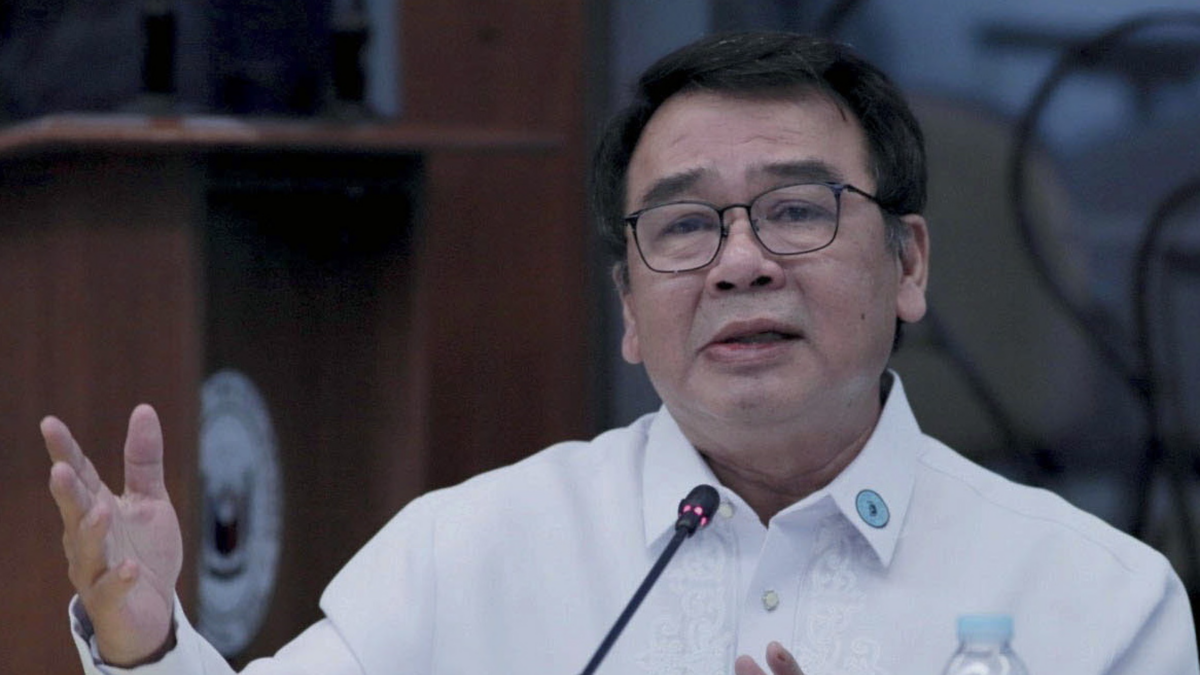MANILA, Philippines — The International Criminal Court (ICC) may have finally wrapped up its investigation into the alleged crimes against humanity case against former President Rodrigo Duterte and is now preparing for trial, one of the counsels for drug war victims said on Sunday.
Former Bayan Muna Rep. Neri Colmenares, a lawyer for the families of extrajudicial killing victims and accredited counsel of the ICC, said the court was now encouraging the police and other possible insiders to testify as witnesses, even as the “original set” of witnesses would already suffice.
This process alone was a “new phase in the process of holding Duterte accountable for his crimes against humanity,” Colmenares said in a statement.
READ: Duterte dares ICC to begin probe immediately: ‘Baka mamatay na ako’
“This is a welcome development that brings us closer to achieving justice for the victims and their families,” he noted.
“Since the evidence is already strong and they are probably preparing for trial, we hope the ICC will issue an arrest warrant to ensure Duterte’s presence at the [proceedings],” Colmenares said.
Witness platform
Colmenares also welcomed the ICC’s new initiative of establishing a dedicated platform to gather evidence and call for more witnesses on Duterte’s vicious drug war.
He said this move by the international tribunal could be a hint that it has already finished its investigation.
The ICC recently launched a witness appeal microsite to collect “credible information” about the drug war that left thousands dead during the Duterte administration from 2016 to 2022.
This new platform would help in facilitating a new set of evidence against the other respondents in the case aside from Duterte, according to Colmenares.
“With the ICC announcement of its witness platform it is highly possible that they’ve finished the investigation and are now preparing for trial,” he said.
View of justice officials
Progress in Duterte’s case has yet to be formally announced by the ICC itself, although there had been earlier pronouncements from various parties that made filings before The Hague-based tribunal.
In January, former Sen. Antonio Trillanes IV claimed that a warrant was underway against Duterte, predicting it would come in the middle of 2024.
The House of Representatives, meanwhile, has been conducting congressional hearings about the drug war killings during the Duterte administration.
The quad committee investigating the drug war crimes, however, said it would not voluntarily give the transcripts to ICC investigators but noted that they could access the records through their website and other official social media pages and transcribe them themselves.
While President Marcos maintained his position that he would not cooperate with the ICC, his justice officials opined that the court could do the investigations on their own.
Colmenares said he was still hopeful that the Marcos administration would reconsider its stand on the ICC, saying accountability for Duterte was long overdue.
He also urged parties with direct knowledge of the drug war to come forward and avail themselves of the new platform launched by the ICC.
“It is important for us to achieve justice and every evidence will lead to the path of accountability to those responsible for the killings,” Colmenares emphasized.
“The government should stop obstructing justice and instead help facilitate the investigation,” he added. “The victims’ families have waited far too long for accountability.”
Jurisdiction
When he was president, Duterte rejected the ICC investigation, attacking the tribunal by calling it “useless” and threatening to withdraw the country as a member.
Weeks after the ICC announced in February 2018 that it would conduct a preliminary examination of the drug war deaths, Duterte expressed outrage and unilaterally announced the country’s withdrawal from the Rome Statute, the treaty that created the ICC.
Although the Philippines ceased to be a member of the court on March 17, 2019, the ICC last year cleared the way for an investigation into the drug war deaths and other suspected rights abuses after its Appeals Chamber voted 3-2 to rule that its prosecutors still had jurisdiction over the alleged crimes because they occurred when the Philippines was still an ICC member.
‘Hurry up and come here’
When Duterte finally appeared last month before the House quad committee, he not only reiterated that he would assume full responsibility for all the killings tied to his brutal war on drugs but also dared the ICC to “come here and start the investigation tomorrow.”
In an exchange with Gabriela Rep. Arlene Brosas, Duterte said he “assume[s] full responsibility for whatever happened in the actions taken by the law enforcement agencies of this country to stop the drugs or the serious problem of the drugs affecting our people.”
He dared the ICC to “hurry up and to come here and start the investigation tomorrow,” a line he would repeat throughout the hearing.
“This issue has been left hanging for so many years. It’s been so long… I might die soon, and they might never get to investigate me,” he said. “Let them come here, and if I am found guilty, I will rot in prison.
His remarks were an about-face from his initial position while in power that the ICC had no jurisdiction over the Philippines.
According to police data, more than 6,200 people died in antidrug operations under Duterte’s presidency, during which police typically said they were forced to kill suspects in self-defense.
Human rights groups believe the real toll to be far greater, with thousands more users and small-time peddlers killed in mysterious circumstances by unidentified gunmen.
